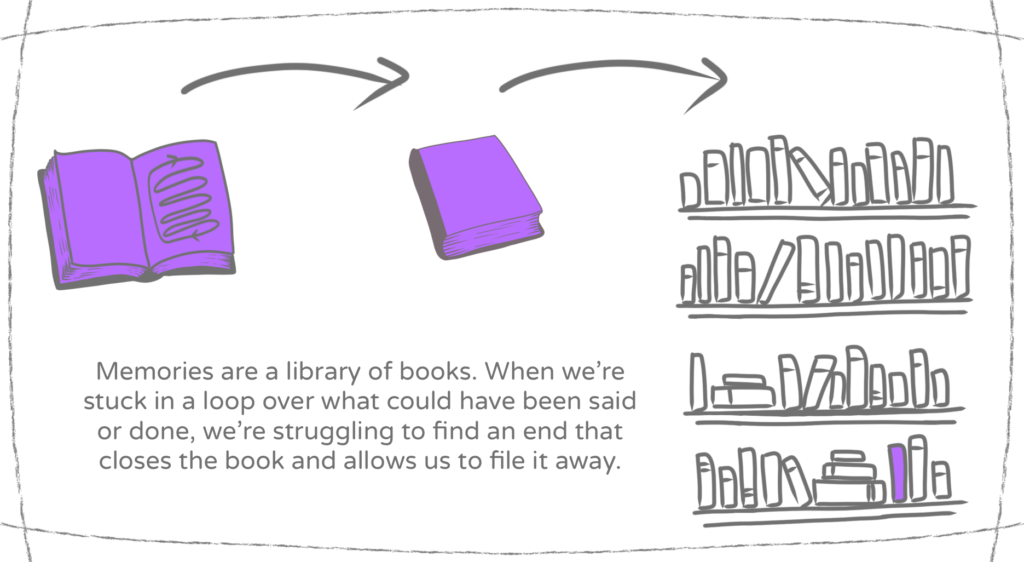Whether the sudden end of a relationship, the unexpected end of a job, or even an expected ending, we can struggle to say all that we needed to. Especially with unexpected endings, the shock inhibits our ability to express our thoughts and feelings at the time, because they haven’t even fully formed. Anger and hurt can also cloud our ability to fully express ourselves. We spend days and nights replaying what we could have said, what we could have done.
When caught in this loop where we are running a script that’s in the past, it helps to expel it from our current focus. Otherwise it keeps replaying and replaying, trying to find a closure that may in fact be impossible because it’s waiting for a response from an absent other. Sometimes we can’t tell whether we’re ruminating because it’s important or just because we haven’t filed it away. We can end this loop by expressing it through words or art.
Personally I find writing by hand valuable. Typing might be quicker but seeing tone in our writing can be cathartic. We can see anger, we can see ourselves calm down. We can write at angles and annotate as we go. Art can also be a valuable method for depicting what could have been, or giving the goodbye that we would have preferred.

Uncensored expression to ourselves, for our eyes only, allows us to then step back and consider what really needs to be said and to whom. It can give us a sense of calm as we can curate the story we want to be told.
Some things to consider:
- What were your expectations? What were their expectations? What assumptions underlie these expectations and how might they be mismatched?
- What do you actually seek from closure? An apology? Validation for your own experience? What do you need from yourself and what do you need from others?
You might want to continue a relationship with the others involved but we struggle to hear what others are saying when we don’t hear our own needs. Giving attention to ourselves first, frees up space to consider others’ perspectives and find a middle ground for reconciliation. Even when a loved one has passed, we can continue a relationship, a dialogue. I have seen clients create spaces in the form of a tree in the garden or a writing space in the attic that symbolise a location for them to pass messages and stay connected.
In situations where there is no future relationship to be had, we want to express ourselves but we also don’t want to see the others involved. Expressing our pain into a tangible object like a piece of paper, and then getting rid of it, can help us to close the book on that period in our life.
Finding closure is an ongoing practice as we find new ways of retelling a book, as and when we choose to look at it.
